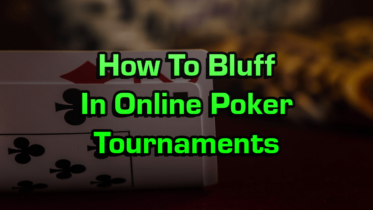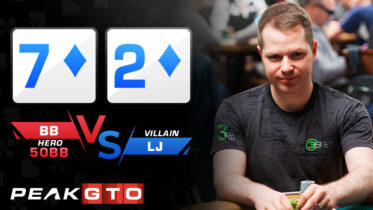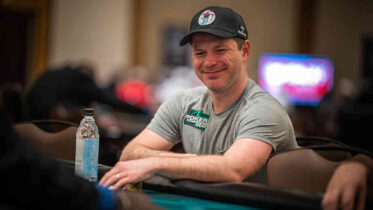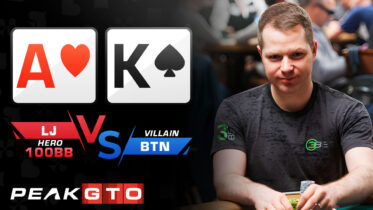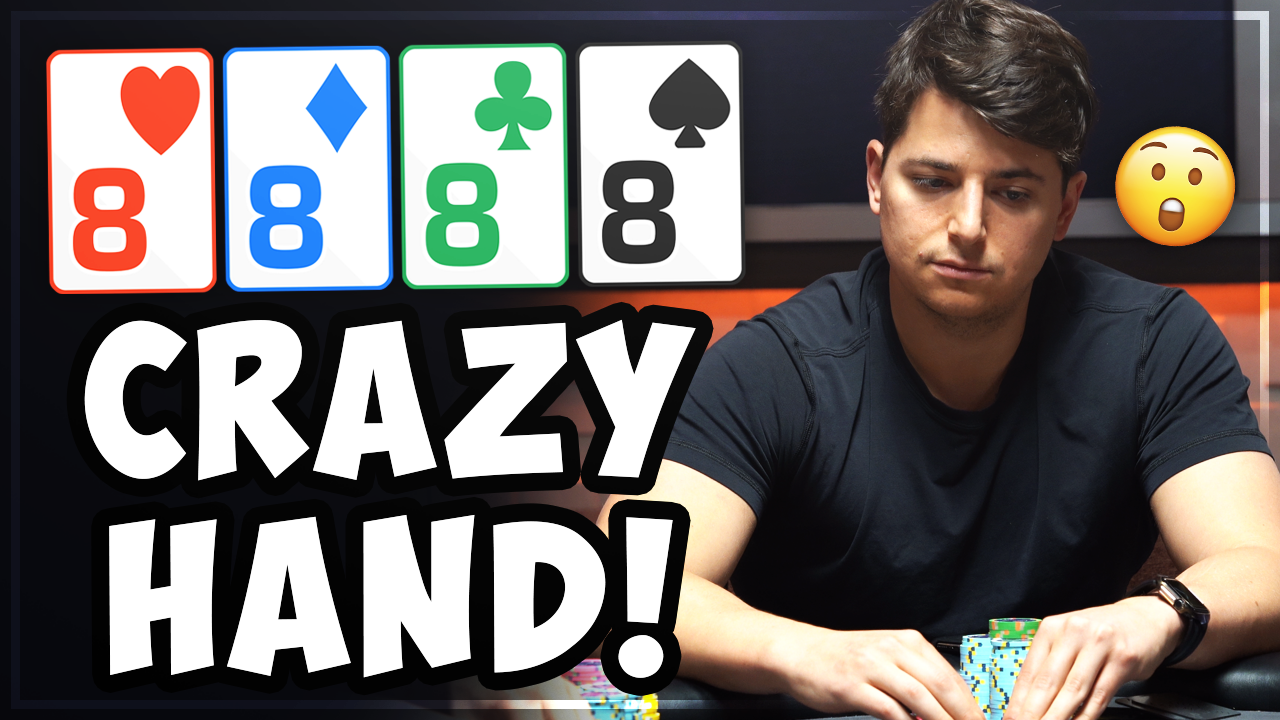Whether you play on WSOP.com, PokerStars, or America’s Cardroom, being able to execute bluffs in online poker tournaments will set you apart from the competition. Do you want to learn how to execute better bluffs in online poker tournaments? When the right bluffing spots present themselves, try these strategies to steal big pots from your opponents. If you can learn how to expertly bluff in online poker tournaments, you are well on your way to being a regular at the final table.
Blast The Big Blind With Bluffs When They Flat
When your opponent flats from the big blind they are likely doing that with half the deck. No one wants to fold from the big blind. They are getting too big of a discount and it is too tempting to see the flop. What does this mean for you? It means your opponent is likely going to flop a high card or a mediocre pair. The majority of their range doesn’t want to see you betting multiple streets against them. Disappoint them.
Let them see multiple shells. Let them see overbets.
You should be especially willing to fire against your opponents when they flat you on suited, coordinated boards. If they call your small continuation bet on a board with a flush draw and straight draw, it is likely they only have pairs or draws. They likely would have raised their two pairs or sets to simultaneously get value from their hands and also protect them. When they just call you, it is far more likely they have one of their many “awkward pairs”.
When your opponent holds an “awkward pair”, the last thing they want to see from you is another huge bet. Disappoint them. No one wants to call huge bets out of position with awful pairs. Exploit that.
Fire more when you have the nuts in your range and your opponent does not. A good example of that is when the flop comes A-K-3 rainbow. If they just called your raise out of the big blind then it is unlikely they have AA, KK, and AK. However, you have all those hands in your range. Make them miserable with their mediocre pairs. Shell them with huge bets.
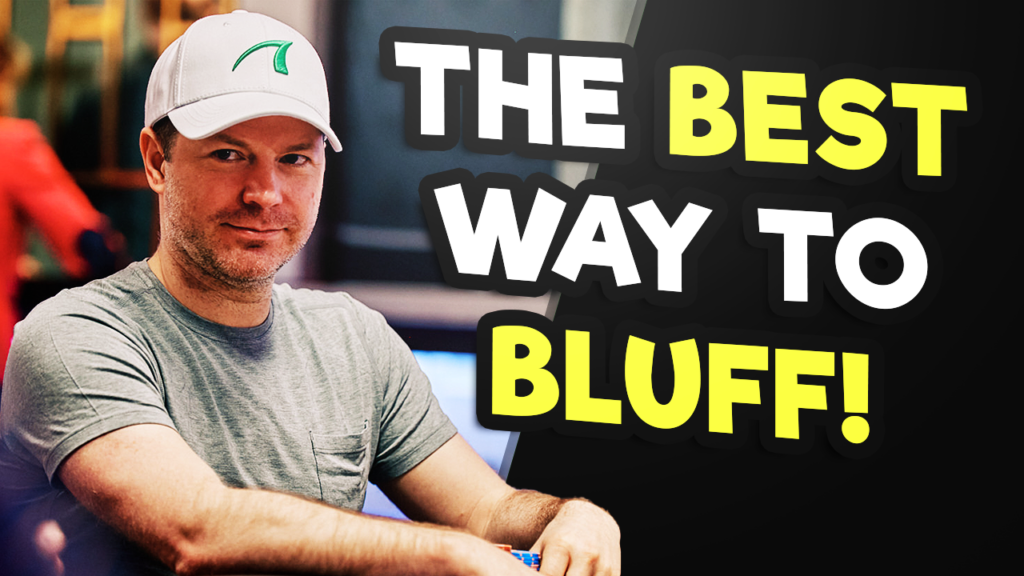
Let Jonathan Little teach you how to bluff like the pros!
Check-Raise Opponents Trying To Pot Control
Have you ever seen an opponent who likes to check back their mediocre pairs? Sometimes, you will even see opponents check back top pairs. When opponents take this line, they are usually trying to trap you and hope you will attempt to bluff them on the turn and river. Instead of adding money to the pot themselves, their fear of getting raised causes them to take this passive approach. These kinds of players leave an exploitative opening.
Let’s say you call a cutoff raise from the big blind. You know your opponent likely opens 25% of hands from the cutoff. The board comes K♠-7♦-3♦. You check. Your opponent bets small.
Your opponent is screwed here. Their wide late position opening range has missed this flop the majority of the time. What’s even worse for them is that they would check many of their weaker kings and some sevens. This makes their continuation betting range a bunch of garbage and some sets. Check-raise this opponent sometimes, you’ll be amazed by how often they fold.
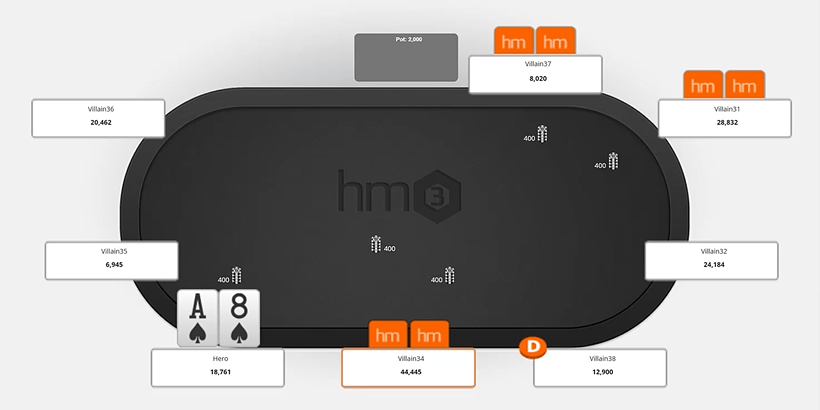
You are playing in a micro stakes, online poker tournament with a stack of 18,761 and the blinds at 200/400.
Your opponents in the lojack, hijack, and small blind limp and you have A♠-8♠ in the big blind.
What Do You Do?
A) Check B) Raise to 1,200 C) Raise to 1,600 D) Raise to 2,400
Re-Raise Opponents Who Open With Too Wide Of Hand Ranges
Taking advantage of opponents with too wide of betting ranges is one of the most basic bluffs, but this article wouldn’t be complete without it.
There are players in poker tournaments who constantly open hands they shouldn’t. It’s as if their job is to get involved out of position. You should exploit these players as much as possible. When they’re opening their garbage suited-gappers, you should constantly put them to the test. Re-raise in position and watch them squirm postflop. Once they call you postflop they have indicated to you that they likely don’t have premium hands. Many players four-bet their aces and kings in the hopes of winning a huge pot.
Since you can eliminate a number of the bigger overpairs that means you can continuation bet bluff the boards that aren’t riddled with high cards. If your opponent does decide to defend versus you and calls on the flop, then you can check back the turn and take two more cards. If you catch up, then you’ll have a huge pot in front of you. Your opponent is likely to call your value bet.
“Weak, tight poker players do not win in poker anymore. If you want to be a big winner, you have to steal pots that don’t belong to you! Poker players who take the time to study bluff spots can give themselves a big edge in online games.”
– Jonathan Little
Double-Barrel Bluff Frequent Floaters
Versus basic opponents, your continuation bets on the flop will usually get them to fold their high cards. However, there are certain situations where your opponents will not want to fold their high cards. One great example of this comes up when the board is very hit-or-miss.
Let’s say you open a 6-5 of spades from the small blind or button. The big blind calls. The board comes K-2-2 rainbow. Your big blind opponent checks to you and you continuation bet. They call. On this board, you should heavily consider double barrel bluffing. Whether your opponent is out of position or not doesn’t matter. If they have a high card or backdoor draw they like, they’re unlikely to go anywhere. They know on that board you either have a king or nothing, and they’re gambling on nothing. Opponents want to call because that’s a more fun way to play, and to be fair, you raised from a later position with a wider range, so it’s more likely you’ve missed this board.
If you’re going to continuation bet on the K-2-2 board you should consider double barreling as well, especially if the turn card comes a blank. Your opponent is likely to have nothing and will fold. They’re far more likely to take the turn barrel seriously as opposed to the automatic flop bet.
Conclusion
For a variety of reasons, it can be difficult to implement a a sound bluffing strategy for online poker tournaments. Maybe the lack of live tells leaves you guessing on what to do. Maybe you are scared money because of your dwindling online poker bankroll. Regardless of what may be hindering your ability to “pull the trigger” on bluffs, I hope these online poker tips help you take your bluffing ability to the next level.
